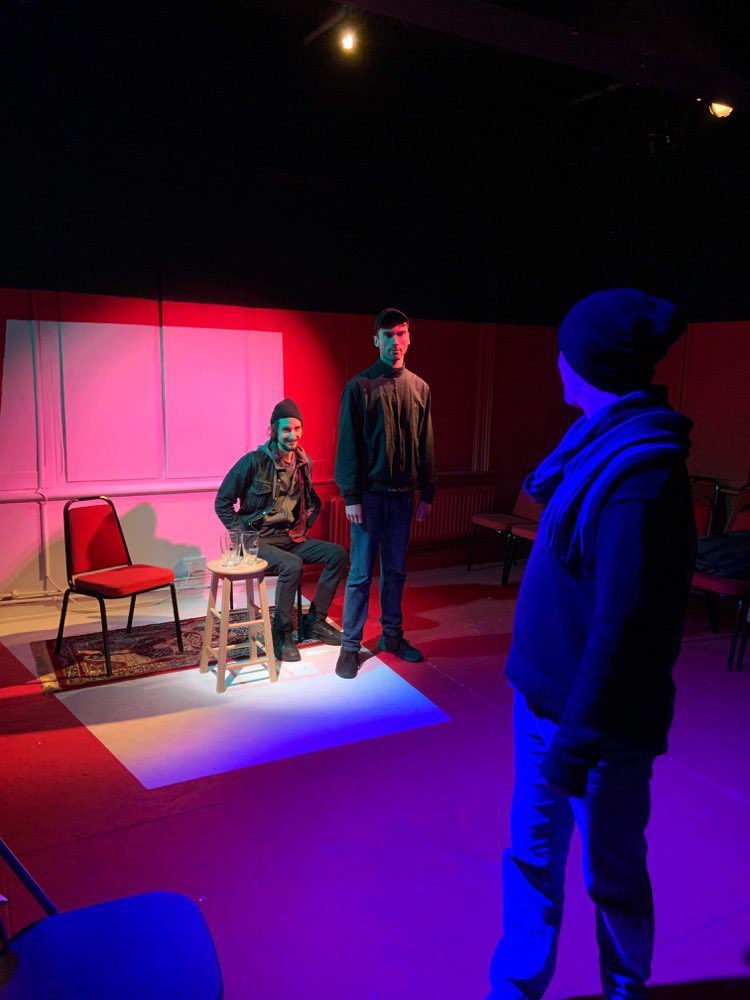What’s the best pint you ever had? Or if that isn’t your particular tipple, the best glass of wine or cup of tea? Not the taste, the moment.
This is the challenge Gerry (Warren Rusher) sets his friends as they sit around for one of their many drinking sessions in their local boozer. The question itself is simply a gateway – a way for three friends to reminisce about what matters to them, what they want from life and what has made a real difference to who they are and how they survive and thrive as men in a modern world that has given them all a bit of a knock.
The play then leads to each telling their stories. For Gerry, the dad of the group both literally and figuratively, it was a shared moment with his son before he went off to university. His emotional openness and honesty allows at least one of his compadres to share their own moment honestly where David (Tarik Badwan) tells a tale both heartbreaking and heartwarming – as all the best stories are. Fantasist Steve (Matthew Blaney) takes longer to get there – taking in a route where he is the centre of an astonishing but ultimately unsatisfying tall tale before he too opens up.
The Best Pints is a very short play and as such feels unpolished at times. The set up is a bit too quickly arrived at – it feels like a handbrake turn from standard matey joshing to eloquent emotional conversation that could have had a smoother and longer glide path. But while the transitions may be clunky, the writing of the moments themselves is charming and honest.
The Best Pints explores two key elements of modern life – our need for stories and how they help us to communicate ourselves and our feelings as well as the particular need for men to have the courage and space to do this with each other. It is a charming depiction of three ordinary men, behaving in what should be an unremarkable way, but laying themselves bare and vulnerable to their friends in ways men are far too often discouraged from doing.
The physical direction was also well handled. The threesome sits around a pub table in the centre of the stage, and so while one will always have their back to you, the movement was deftly handled to ensure that it was varied and you didn’t lose moments of emotional connection.
On the other hand, there were some staging decisions I found odd. I spent far too much of this short play – a play named The Best Pints – wondering why they had chosen to use empty glasses, for example.
Overall, The Best Pints feels like a lovely, but underdeveloped piece of writing. One that deserves the room to grow into a bigger and longer piece that would likely solve some of the issues where the dialogue feels too forced or an emotional turn too unearned. There is plenty to appreciate in the show as it stands, but I will be very interested to see what happens next.

